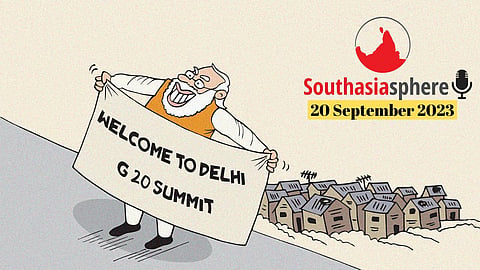G20 summit in Delhi, new allegations on the Easter Sunday bombings, the return of Nawaz Sharif and more
Southasiasphere is our roundup of news events and analysis of regional affairs, now out every two weeks. If you are a member, you will automatically receive links to new episodes in your inbox. If you are not yet a member, you can still get episode links for free by signing up here.
In this episode, we talk about the G20 summit in Delhi and allegations in a recent documentary by the UK's Channel 4 News about government involvement in Sri Lanka's 2019 Easter Sunday bombings.
In "Around Southasia in 5 minutes" we talk about ransomware attacks impacting Tamil Nadu and Sri Lankan government data, the rollout of Bhutan's digital identification system, outbreaks of dengue in Bangladesh and of the Nipah virus in Kerala, new remittance rules impacting migrant workers in Myanmar, the Editors Guild of India's fact-finding report on Manipur and FIRs against the guild filed by the Manipur police, and former Pakistani prime minister Nawaz Sharif's imminent return to the country ahead of elections.

